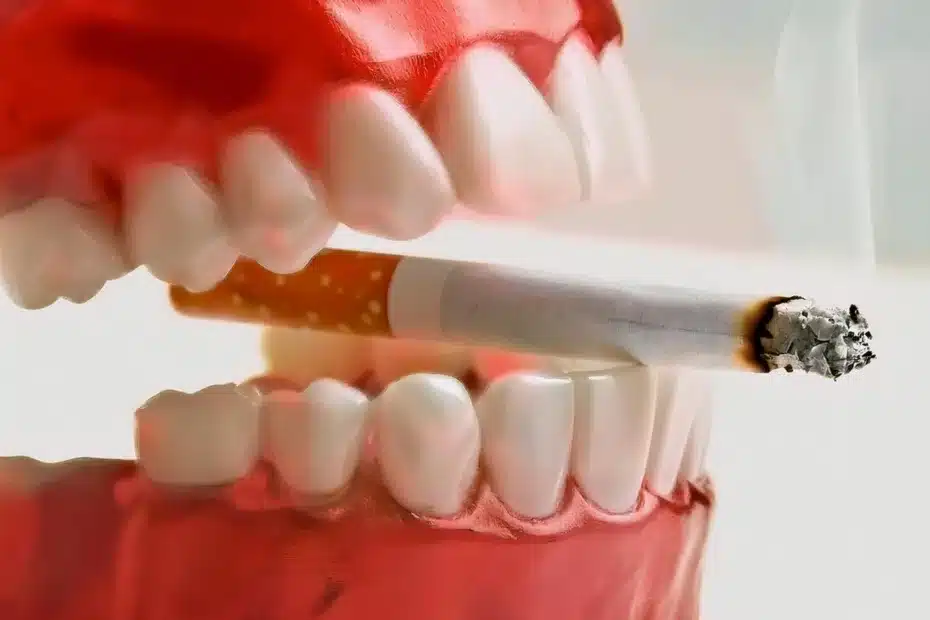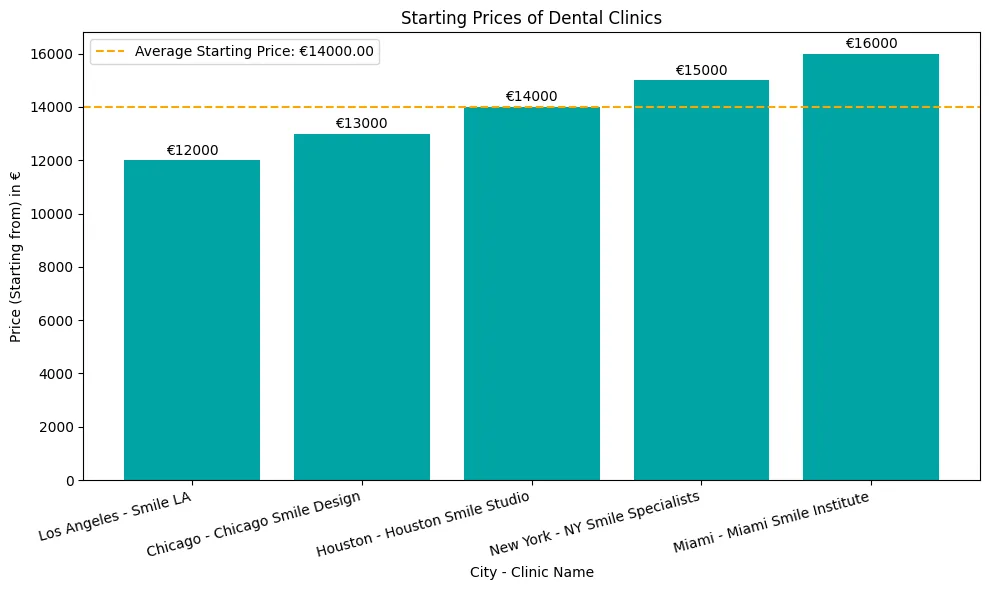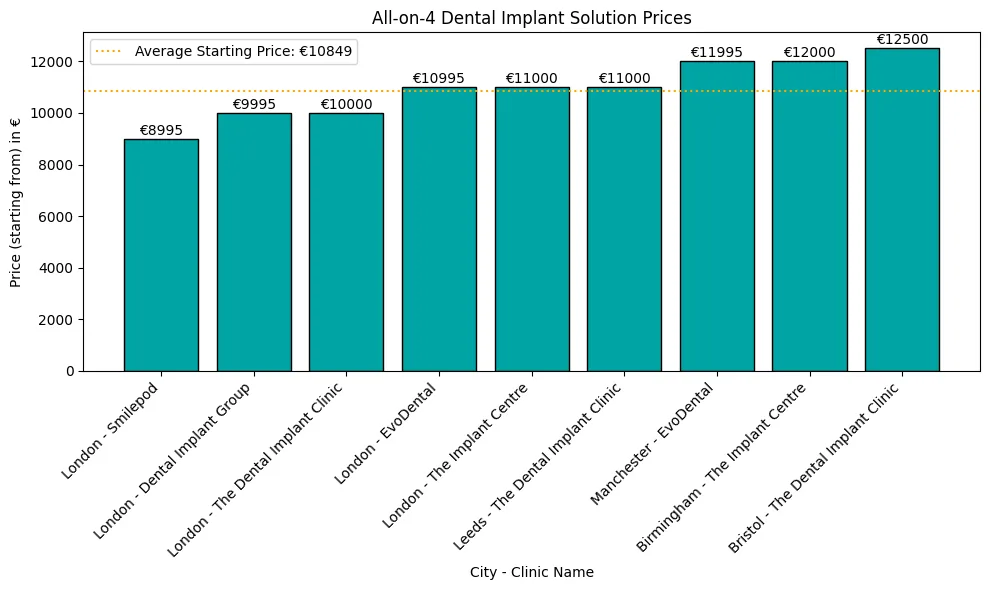Se siete fumatori e state pensando di impianti dentaliProbabilmente siete preoccupati dell'impatto del fumo di sigaretta sul successo dell'intervento.
Il fumo può davvero influire sulla longevità e sulla stabilità dei vostri impianti dentali e quali sono i rischi specifici di cui dovete essere consapevoli?
Il fumo può influire sugli impianti dentali?
Sì, il fumo può influire sugli impianti dentali: interferisce con il processo di guarigione delle gengive e dell'osso mascellare intorno al sito implantare. I fumatori possono sperimentare un processo di guarigione più lento, che può aumentare il rischio di infezione e fallimento dell'impianto. Impianti dentali e gravidanzaEntrambe le condizioni richiedono un'attenzione particolare alla guarigione e alla salute generale.
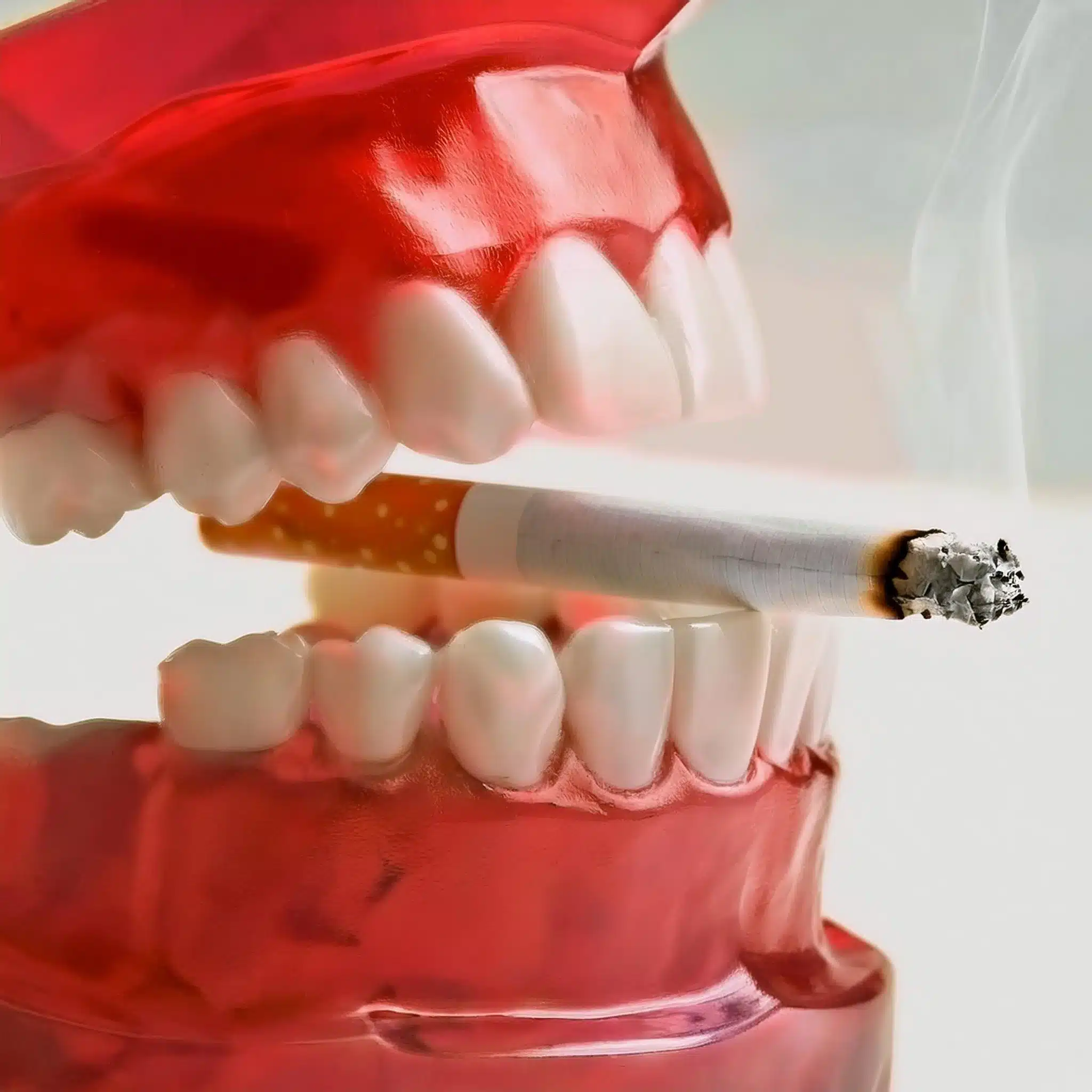
Quali sono i rischi di fallimento dell'impianto dentale nei fumatori?
I fumatori corrono diversi rischi maggiori con gli impianti dentali, tra cui un rischio più elevato di fallimento dell'impianto.
Ecco i rischi principali:
Tasso di fallimento più elevato
I fumatori hanno un tasso di fallimento molto più elevato rispetto ai non fumatori. Il processo di guarigione e di integrazione compromesso può far sì che l'impianto non si ancori correttamente all'osso mascellare.(1)
Il fumo aumenta in modo significativo il rischio di fallimento precoce dell'impianto, con ripercussioni sia sull'integrazione dell'impianto che sui risultati complessivi della salute orale.
Peri-implantite
Si tratta di una condizione infiammatoria dei tessuti molli e duri intorno all'impianto. I fumatori sono più inclini alla peri-implantite, che può causare perdita di osso e instabilità dell'impianto. Il rischio di peri-implantite è maggiore nei fumatori a causa dell'impatto negativo del tabagismo sull'igiene orale e sull'osteointegrazione dell'impianto.

Guarigione ritardata
La guarigione è più lenta nei fumatori a causa della riduzione del flusso sanguigno e dell'ossigeno ai tessuti. Questo può aumentare il rischio di complicazioni e prolungare i tempi di recupero.(3)
Aumento del rischio di infezione
I fumatori hanno un rischio maggiore di infezione nel sito implantare. Le infezioni possono compromettere il processo di guarigione e portare al fallimento dell'impianto.
Perdita ossea
Il fumo può accelerare la perdita di osso intorno all'impianto, indebolendo la struttura di supporto e aumentando il rischio di fallimento nel tempo.
Durata di vita più breve
Anche se l'impianto ha inizialmente successo, il successo e la durata a lungo termine degli impianti dentali sono ridotti nei fumatori a causa dei continui danni alla salute orale.
Sapendo questo, i fumatori possono comprendere meglio le sfide che devono affrontare con gli impianti dentali e l'importanza di smettere o ridurre il fumo per aumentare le probabilità di successo.(5)
| Fattore di rischio | Descrizione | Impatto sul successo implantare |
|---|---|---|
| Tasso di fallimento più elevato | I fumatori hanno un tasso di fallimento implantare significativamente più alto rispetto ai non fumatori, a causa della compromissione della guarigione e dell'integrazione. | Gli impianti potrebbero non ancorarsi correttamente, causando un fallimento. |
| Peri-implantite | Infiammazione dei tessuti intorno all'impianto, più comune nei fumatori, che causa perdita di osso e instabilità. | Può portare all'instabilità e al fallimento dell'impianto. |
| Guarigione ritardata | La riduzione del flusso sanguigno e dell'ossigeno ai tessuti nei fumatori rallenta il processo di guarigione. | Aumenta il rischio di complicazioni e prolunga i tempi di recupero. |
| Aumento del rischio di infezione | I fumatori hanno un rischio maggiore di infezione nel sito implantare, compromettendo la guarigione. | Le infezioni possono portare al fallimento dell'impianto. |
| Perdita ossea | Il fumo accelera la perdita di osso intorno all'impianto, indebolendone la struttura di supporto. | Aumenta il rischio di fallimento dell'impianto nel tempo. |
Smettere di fumare può migliorare il successo dell'impianto?
Sì, smettere di fumare può migliorare il successo del trattamento implantare:
Guarigione più rapida
Smettere di fumare aumenta il flusso sanguigno e l'ossigeno alle gengive e alle ossa, favorendo una migliore guarigione dopo l'inserimento dell'impianto.
Questo processo di guarigione più rapido favorisce l'osteointegrazione e aumenta le probabilità di successo.
Riduzione del rischio di infezione
Smettere di fumare rafforza il sistema immunitario e riduce il rischio di infezioni nel sito implantare.
Una risposta immunitaria più sana previene le complicazioni e favorisce il processo di guarigione.(6)
Osso stabilizzato
Smettere di fumare rallenta la perdita di osso, in modo che l'impianto abbia una base più stabile e sicura.
Questa stabilità è fondamentale per il successo e la durata a lungo termine degli impianti dentali.
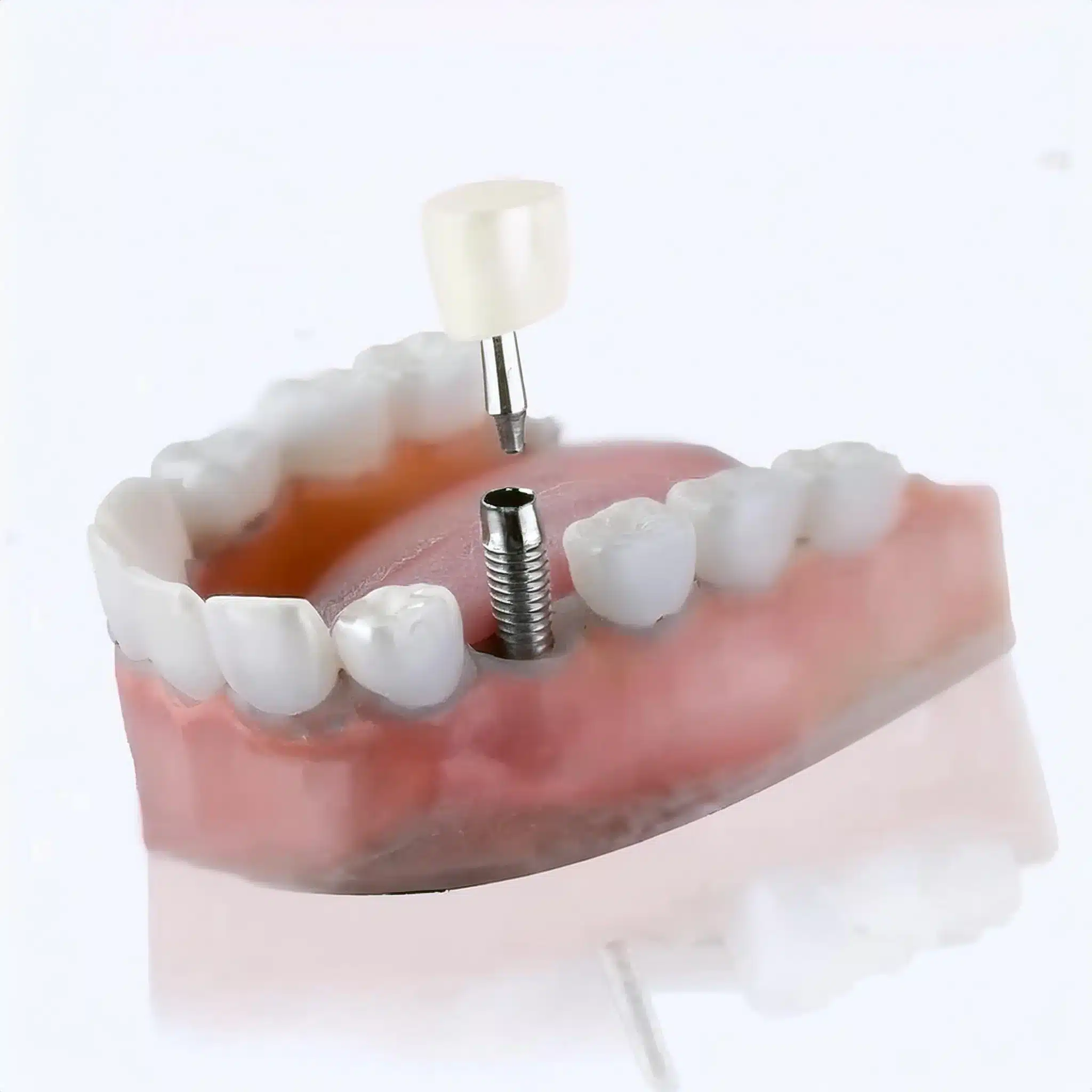
Gengive più sane
Gengive sane sono essenziali per gli impianti dentali.
Smettere di fumare riduce il rischio di malattie gengivali, che possono compromettere la stabilità dell'impianto e portare al fallimento.
Chi può ricevere impianti dentali? In generale, chiunque abbia una buona salute generale e una densità ossea sufficiente può essere un candidato per gli impianti dentali.
Tuttavia, alcune condizioni di salute e alcuni farmaci possono influire sul successo della procedura.
Cosa possono fare i fumatori per aumentare il successo dell'impianto
Parlate con il vostro dentista: Prima dell'intervento di implantologia, discutete con il vostro dentista, specializzato in implantologia, delle vostre abitudini di fumo.

Possono fornire consigli specifici e supporto per smettere di fumare.
Stabilire una data di uscita: Scegliere una data per smettere di fumare ben prima dell'intervento di impianto.
In questo modo il corpo ha il tempo di avviare il processo di guarigione.
Utilizzare i sistemi di supporto: Considerate la possibilità di ricorrere a terapie sostitutive della nicotina, a farmaci o a consulenze per aiutarvi a smettere di fumare.
Buona igiene orale: Spazzolare e usare il filo interdentale regolarmente per mantenere la bocca sana. (4)
Seguire tutte le istruzioni post-operatorie fornite dal dentista.
Non fumare dopo un intervento chirurgico: Non fumare durante il periodo di guarigione per consentire il corretto recupero e l'integrazione dell'impianto.
Smettendo di fumare e seguendo questi consigli, i fumatori possono aumentare le probabilità di successo della procedura implantare e di avere un sorriso sano e funzionale.
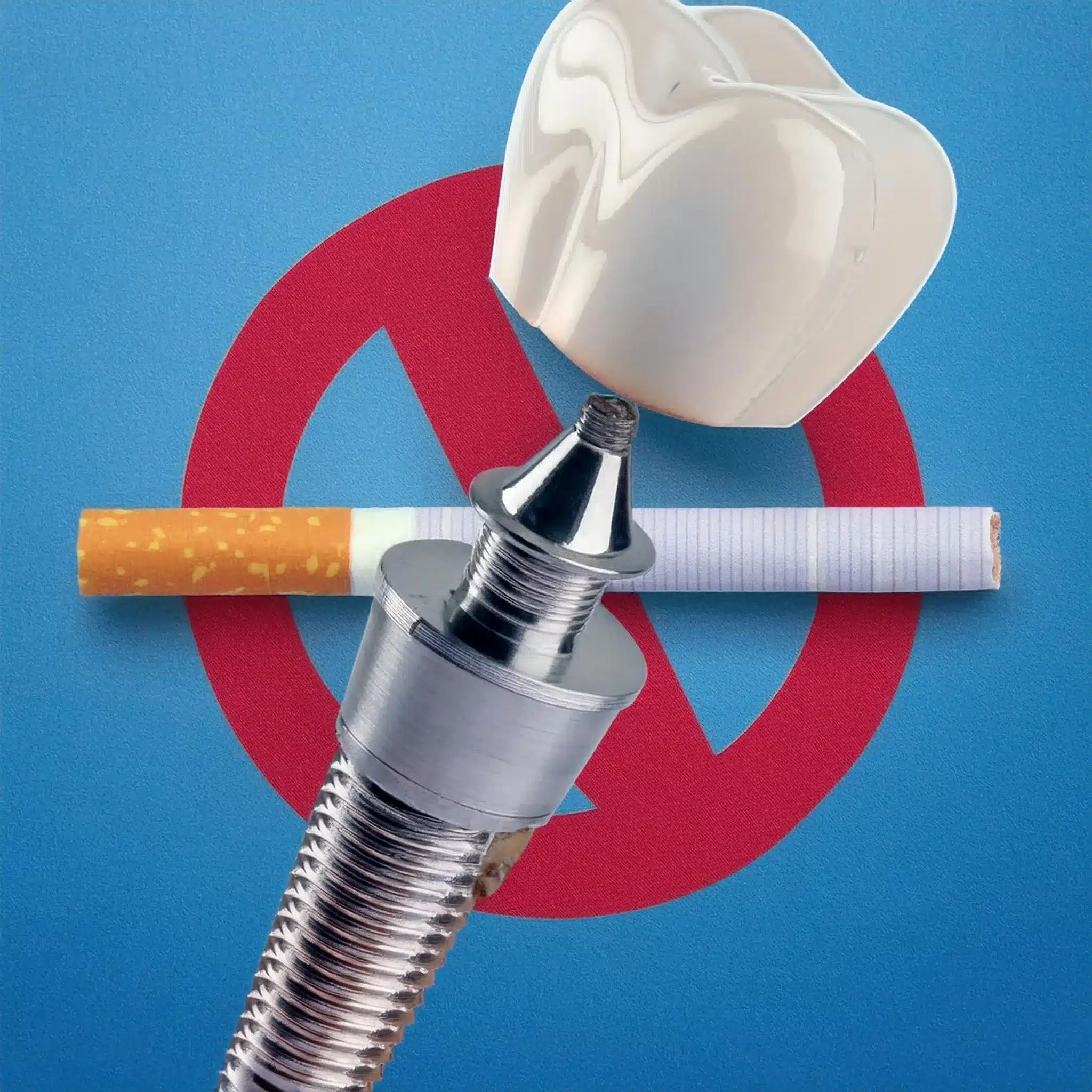
Conclusioni e punti chiave
Punti di forza:
Impatto del fumo: Il fumo disturba la guarigione, portando a tassi di fallimento più elevati, perimplantite, guarigione ritardata, aumento del rischio di infezione, perdita di osso e una durata di vita dell'impianto più breve.
Benefici dello smettere di fumare: Smettere di fumare favorisce una guarigione più rapida, riduce i rischi di infezione, stabilizza le ossa e garantisce gengive più sane, tutti fattori che contribuiscono al successo e alla durata a lungo termine degli impianti dentali.(1)
Passi d'azione per i fumatori:
Consultare un dentista per quanto riguarda l'abitudine al fumo.
Fissare una data di abbandono prima dell'intervento di impianto.
Utilizzare sistemi di supporto come terapie sostitutive della nicotina, farmaci o consulenza.
Mantenere una buona igiene orale e seguire le istruzioni post-operatorie.
Evitare di fumare dopo l'intervento per garantire un recupero adeguato e l'integrazione dell'impianto.
Conclusione
Il fumo influisce significativamente sul successo degli impianti dentali, aumentando il rischio di una guarigione ritardata, di infezioni, di perdita di osso e di fallimento dell'impianto.
Tuttavia, smettere di fumare può fare una differenza significativa per chi sta pensando o si sta sottoponendo a un intervento di implantologia dentale.(2)
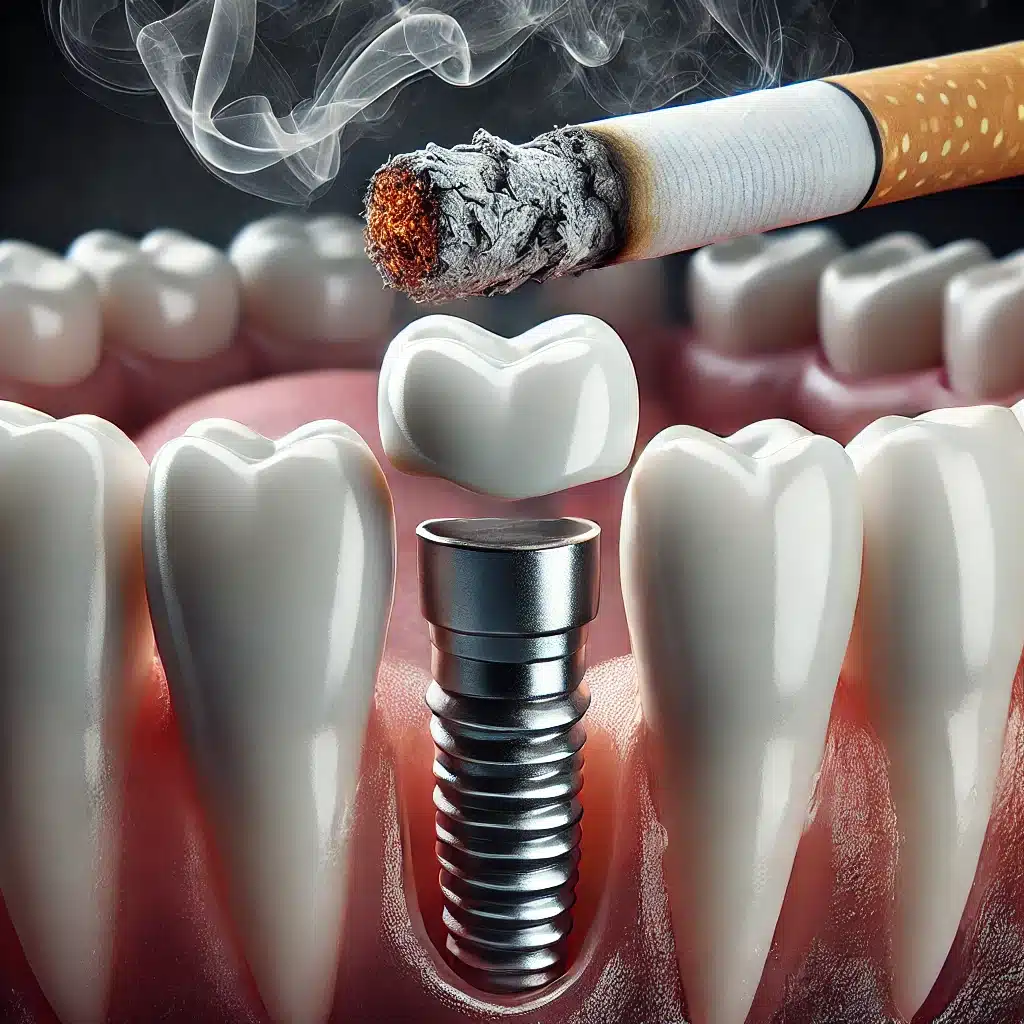
FAQ
Riferimenti
(1) Esposito M, Grusovin MG, Coulthard P, et al. Interventi per la sostituzione di denti mancanti: impianti dentali in alveoli di estrazione freschi. Cochrane Database Syst Rev. 2006;(3):CD005968.
Articolo: Interventi per la sostituzione dei denti mancanti: impianti dentali in alveoli estrattivi freschi
(2) Panchal M, Khare S, Khamkar P, et al. Impianti dentali: Una revisione dei tipi, dell'analisi del design, dei materiali, dei metodi di produzione additiva e degli scopi futuri. Procedia CIRP. 2022;105:214-219.
(3) Guillaume B. Impianti dentali: Una revisione. J Stomatol Oral Maxillofac Surg. 2016;117(6):407-411.
Articolo: Impianti dentali: Una revisione
(4) Albrektsson T, Zarb G, Worthington P, et al. L'efficacia a lungo termine degli impianti dentali attualmente utilizzati: una revisione e criteri di successo proposti. Int J Oral Maxillofac Implants. 1986;1(1):11-25.
(5) Buser D, Sennerby L, De Bruyn H. La moderna odontoiatria implantare basata sull'osteointegrazione: 50 anni di progressi, tendenze attuali e questioni aperte. Periodontol 2000. 2017;73(1):7-21.
(6) Lindhe J., Meyle J. Malattie perimplantari: Consensus Report del Sesto Workshop Europeo di Parodontologia. J Clin Periodontol. 2008;35(8 Suppl):282-285.
Articolo: Malattie perimplantari: Rapporto di consenso del Sesto Workshop Europeo di Parodontologia

